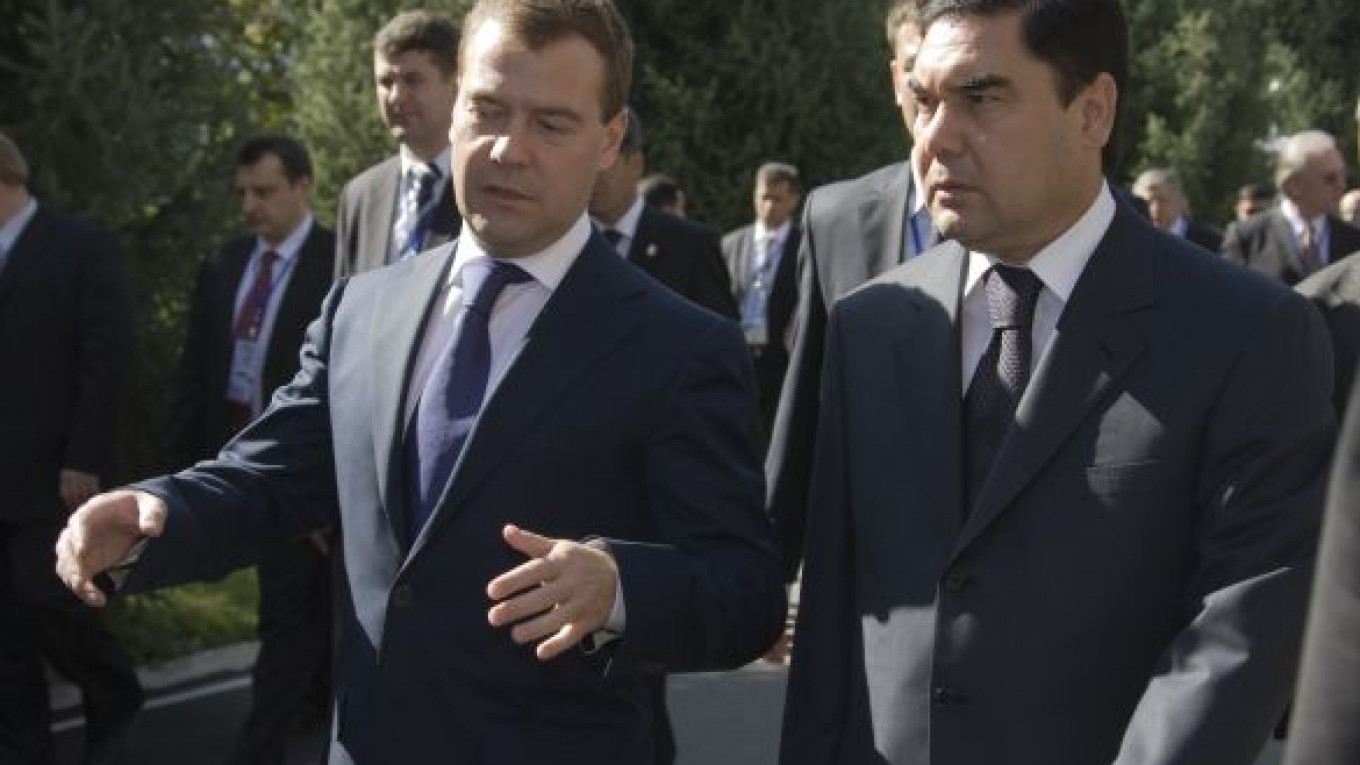ASHGABAT, Turkmenistan — Senior officials in Turkmenistan say the energy-rich Central Asian nation plans to sign a natural gas sales agreement with Afghanistan, Pakistan and India this month.
The deal would mark a decisive move toward construction of a pipeline crossing the four nations that backers hope will meet energy demands across the region.
Two high-ranking officials, who cannot be named as they are not authorized to speak with the media, said they expect the agreement to be signed at an energy conference in Turkmenistan late May.
Progress on the project has to date been delayed by disagreement among participant nations on transit fees and the price for the gas.
It has been widely assumed that gas for the more than 1,600-kilometer pipeline will be sourced from the Dauletabad field in southern Turkmenistan.
An official from the state gas company said, however, that a portion of the fuel will eventually be drawn from the vast and yet-to-be developed South Yolotan field near the Afghan border.
Independent British auditor Gaffney, Cline & Associates estimates that South Yolotan may hold up to 21.2 trillion cubic meters of gas, potentially making it the second-largest reserve of gas in the world after the South Pars field, shared between Iran and Qatar.
Turkmen President Gurbanguly Berdymukhammedov has said Afghanistan could stand to earn more than $1 billion annually in transit fees. Afghan leader Hamid Karzai predicts maintaining the pipeline could provide employment for 50,000 people in Afghanistan alone.
The gas pipeline across Afghanistan, projected to ship 33 billion cubic meters a year, has been actively backed by the United States. It would give Turkmenistan a further export route for its copious energy reserves and generate revenue for Afghanistan. It currently exports to Russia and Iran, and also harbors ambitions of selling directly to Europe.
But many observers remain concerned about the security risks of laying a pipeline across some of the most dangerous parts of Afghanistan and Pakistan's unruly tribal areas.
A Message from The Moscow Times:
Dear readers,
We are facing unprecedented challenges. Russia's Prosecutor General's Office has designated The Moscow Times as an "undesirable" organization, criminalizing our work and putting our staff at risk of prosecution. This follows our earlier unjust labeling as a "foreign agent."
These actions are direct attempts to silence independent journalism in Russia. The authorities claim our work "discredits the decisions of the Russian leadership." We see things differently: we strive to provide accurate, unbiased reporting on Russia.
We, the journalists of The Moscow Times, refuse to be silenced. But to continue our work, we need your help.
Your support, no matter how small, makes a world of difference. If you can, please support us monthly starting from just $2. It's quick to set up, and every contribution makes a significant impact.
By supporting The Moscow Times, you're defending open, independent journalism in the face of repression. Thank you for standing with us.
Remind me later.






